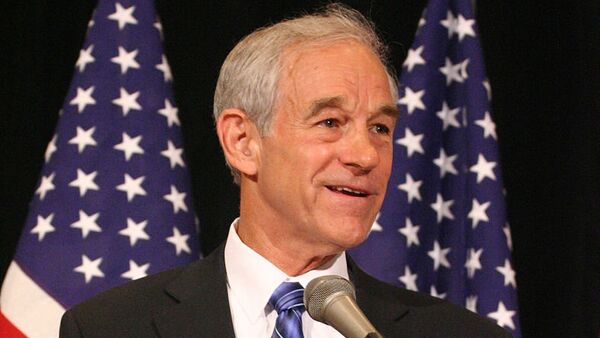U.S. Republican presidential candidates locked horns on national security and foreign policy, trading barbs in a televised debate that centered largely on finding the best balance between safety and freedom.
“Our early founders were very clear,” said Ron Paul, a congressman from Texas well known for his libertarian views. “They said: ‘Don’t be willing to sacrifice our liberty for security.’”
His comment came as the candidates who want to challenge President Barack Obama, a Democrat, kicked off the debate with a lively argument over the Patriot Act, legislation signed into law by Obama’s Republican predecessor, George W. Bush, in the wake of the September 11 attacks and that dramatically enhanced the powers of security agencies.
Paul called the Act “unpatriotic” but other Republican challengers, notably the current Republican field frontrunners – Newt Gingrich, a former speaker of the US House of Representatives, and Mitt Romney, a former governor of the state of New Hampshire – ripped into Paul’s position.
“You start thinking about one nuclear weapon in one American city and the scale of loss of life and you ask yourself: ‘What should the president be capable of doing to stop that?’” Romney said, adding: “You come up with a very different answer” than what Paul offered.
Speaking on U.S. foreign policy in general, most of the candidates rolled out well-worn Republican Party themes. Romney, for example, stressed his view that strong support for Israel is central to Washington’s overall foreign policy agenda and said that if elected, he would make his first overseas trip to the Jewish state.
“We have a president who pursued an agenda of ‘we are going to be friendly to our foes and we are going to be disrespectful to our friends,’” Romney charged, targeting his criticism at Obama. He said the United States should work to impose “crippling sanctions” against Iran and should “indict” its president Mahmoud Ahmadinejad.
Rick Perry, the governor of Texas who saw his presidential hopes fade recently after some notable missteps in previous debates, called for the United States to impose sanctions directly on Iran’s central bank.
“That would be one of the most powerful ways to impact" that country, Perry said. Perry also raised some eyebrows when he called for imposition of a “no-fly zone” over Syria similar to that imposed earlier this year by the U.S.-led NATO alliance over Libya, an action for which Obama and other leaders have shown little enthusiasm.
Among key topics addressed during the debate was the controversial notion of “racial profiling,” a term that describes methods used by security services to search for potential terrorists and criminal suspects on the basis of physical attributes including race and gender. Critics say the method is immoral, unethical and in violation of the U.S. Constitution.
“Obviously Muslims would be someone to look at, absolutely,” argued Rick Santorum, a former senator from Pennsylvania. He claimed it was radical Muslims and young men who were committing crimes in the United States more often than other categories of people and said security agencies should use racial profiling “to find the most likely candidate.”
Herman Cain, the former CEO of the Godfather’s Pizza chain, agreed, saying: “If you take a look at the people who have tried to kill us, it would be easy to figure out exactly what that identification profile looks like.”
Turning to the complicated U.S. relationship with Pakistan, Michele Bachmann, a congresswoman from Minnesota, said Pakistan “lies” and “does everything possible that you can imagine wrong.”
At the same time, she argued, the relationship with Pakistan, a volatile nuclear power, was vital both to U.S. interests and global security. Pakistan, she said, is “too nuclear to fail.”




